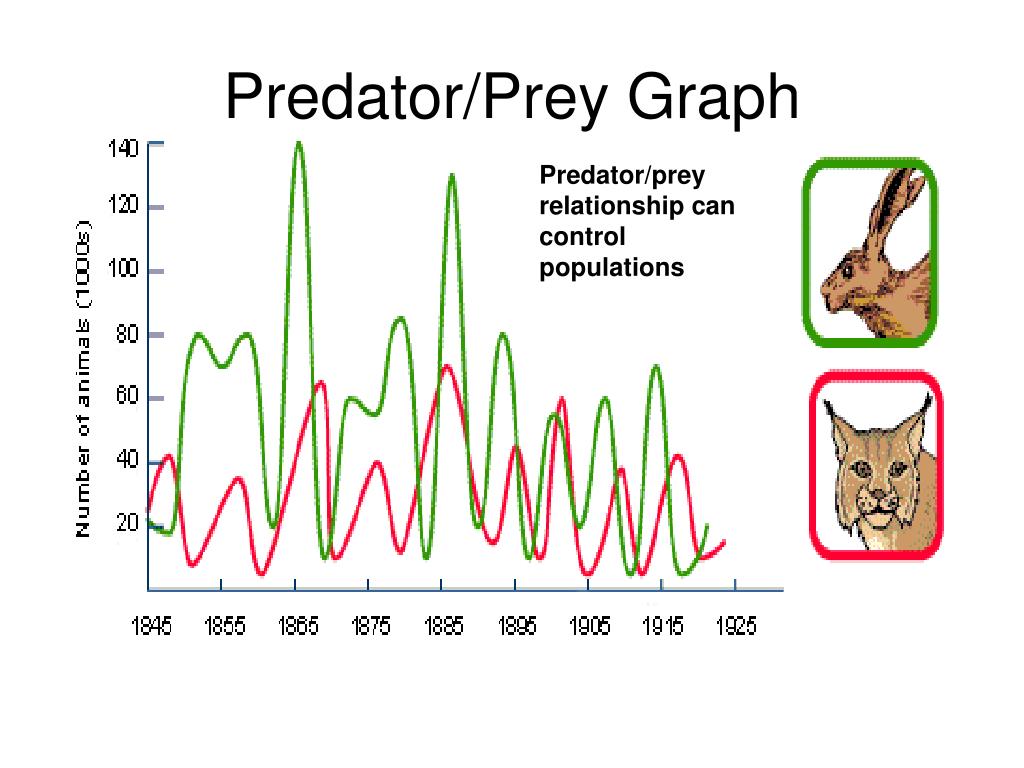An environment that provides everything an organism needs to live, grow, and reproduce
Habitat
Dissolved Oxygen
abiotic
Commensalism
An animal that eats other organisms
Predator
Look at the graph to answer the question. In 1885 the lynx population is at it's highest, but the hare population is declining. Why is this the case?

The growing amount of predators limits the size of prey.
All members of one species living in a particular area form
Population
Algae
Biotic
A tick attaches to a coyote, eating their blood and making the coyote sick.
Parasitism
An animal that other animals eat
Prey
Use the graph to answer the question. Predict what would happen to the hare population if the lynx population was wiped out due to a disease.

The number of hare would increase due to fewer predators.
All the different populations that live in a certain area
Community
Trees
Biotic
A coyote eats the fruits from a cactus, spreading its seeds
Mutualism
A change in which an organism or species becomes better suited for its environment
Adaptation
Why might it be helpful for a scientist to track the population size of a species?
Answers vary.
-to determine human impact on environment
-monitor endangered species
-determine which limitations are needed for hunting
all the living and nonliving factors in a particular area
Ecosystem
Air temperature
Abiotic
A rat leaves behind burrows that the toad lives in
Commensalism
The maximum number of individuals that an ecosystem can support
Carrying Capacity
Describe how natural selection would impact a population.
The organisms best adapted to their environment survive and pass those adaptations on to offspring.
The process in which organisms better adapted to their environment survive and reproduce
Natural Selection
Water quality
abiotic
Cactus flowers are pollinated by a bee while the bee drinks the nectar
Mutualism
Anything that constrains a population's size and slows or stops it from growing
Limiting Factor
Give one possible reason why the deer population could decrease OTHER than predation.
Answers vary
-lack of resources
-disease
-human impact (hunting, etc.)